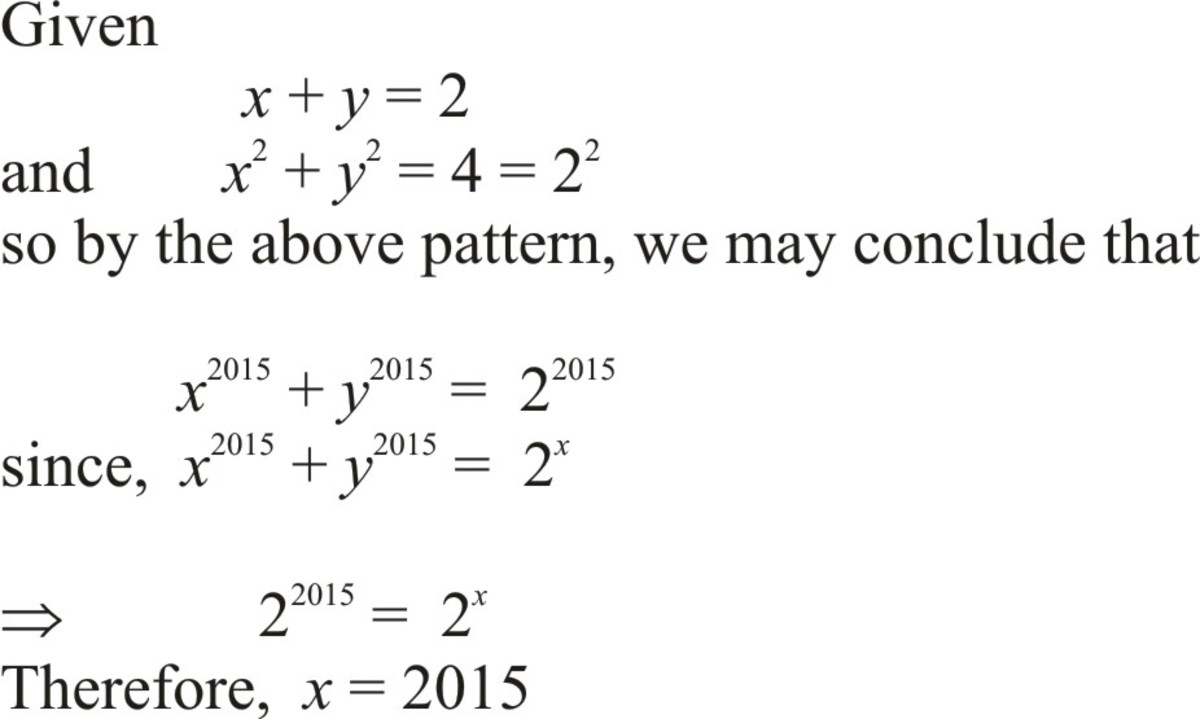Binomial Expansion
If x + y = 2 and x 2 + y 2 = 4 , and x 2 0 1 5 + y 2 0 1 5 = 2 z .
Then the value of z is
This section requires Javascript.
You are seeing this because something didn't load right. We suggest you, (a) try
refreshing the page, (b) enabling javascript if it is disabled on your browser and,
finally, (c)
loading the
non-javascript version of this page
. We're sorry about the hassle.
3 solutions
Squaring the first equation gives x 2 + y 2 + 2 x y = 4 = x 2 + y 2 , so x y = 0 . Thus, x , y = 2 , 0 and x 2 0 1 5 , y 2 0 1 5 = 2 2 0 1 5 , 0 . Thus, x 2 0 1 5 + y 2 0 1 5 = 2 2 0 1 5 .
But x is either 0 or 2, so cannot be 2015...
To solve the last equation (X^2015 + Y^2015 = 2^X) look at the first equation ( X + Y = 2) then put X in terms of Y. You will get (X = 2- Y) After this you substitute the value of X so that the last equation is ((2 -Y)^2015 + Y^2015 = 2^X) If you expand the brackets (2^2015 - Y^2015 + Y^2015 = 2^X). You can now cancel the Y as they are were + and -. This leaves us with (2^2015 = 2^X). So X = 2015
(2-Y)^2015 does not simply expand to 2^2015 - Y^2015 !!
